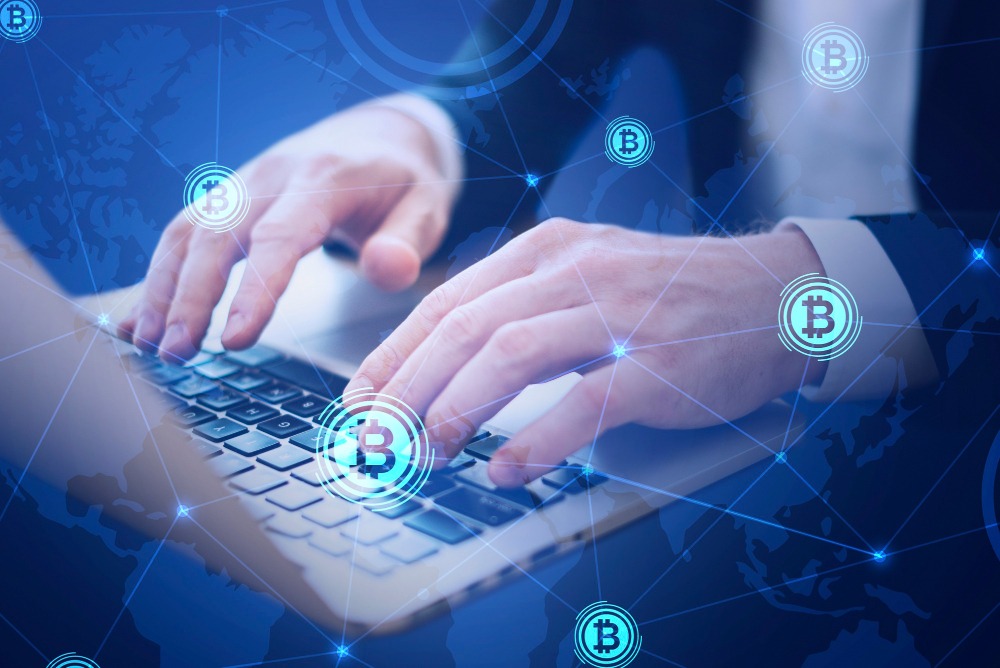
Artificial Intelligence (AI) has, in 2025, cemented its position as the most transformative technology of our generation.1 From sophisticated large language models generating human-quality text to complex algorithms powering autonomous vehicles and drug discovery, AI’s capabilities are expanding at an unprecedented rate. Yet, beneath the surface of this remarkable progress lie profound challenges: centralization of power, data privacy concerns, transparency issues, and the critical need for verifiable, unbiased AI.
Enter blockchain technology. What was once seen as a niche financial innovation is now recognized as a foundational layer for building trust, ensuring transparency, and enabling true decentralization in the digital realm.2 The convergence of AI and blockchain isn’t just a trend; it’s a symbiotic relationship that promises to unlock the full potential of both, addressing their respective weaknesses and forging a new, more equitable, and powerful digital future.3
Why the Synergy? Addressing AI’s Centralization Conundrum
At its core, AI often relies on vast datasets and immense computational power, typically controlled by a handful of tech giants.4 This centralization raises several red flags:
- Data Monopolies: Whoever controls the most data often has the most powerful AI, leading to concentrated power and potential censorship.
- Bias and Lack of Transparency: “Black box” AI models, especially in critical sectors like finance or healthcare, raise concerns about inherent biases, lack of auditability, and opaque decision-making processes.5
- Security Vulnerabilities: Centralized AI systems are prime targets for cyberattacks, data breaches, and manipulation.6
- Privacy Erosion: The collection and processing of vast amounts of personal data by centralized AI systems pose significant privacy risks.7
Blockchain, with its inherent characteristics of decentralization, immutability, transparency, and cryptographic security, offers compelling solutions to these challenges.8
Blockchain for AI: Building Trust and Decentralizing Intelligence
The integration of blockchain into the AI stack provides a robust framework for a more trustworthy, transparent, and decentralized AI ecosystem:9
- Verifiable AI and Data Provenance:
- The Problem: How do we trust the data an AI was trained on? How do we verify an AI’s decision-making process, especially if it impacts human lives (e.g., medical diagnosis, loan applications)?
- The Blockchain Solution: Blockchain provides an immutable ledger to record the origin, transformations, and usage of data used to train AI models.10 This “data provenance” ensures that AI models are learning from unaltered, high-quality data.11 Furthermore, cryptographic techniques like Zero-Knowledge Proofs (ZKPs) and Zero-Knowledge Machine Learning (ZKML) are revolutionizing AI auditability.12 ZKPs allow an AI system to prove that a certain computation (e.g., a prediction or decision) was performed correctly, using specific data, without revealing the underlying proprietary data or the AI model itself.13 This is critical for maintaining privacy while ensuring accountability, especially for complex AI outputs in finance, healthcare, and legal sectors.
- Decentralized AI Model Training and Marketplaces:
- The Problem: Training cutting-edge AI models requires immense computational resources and vast, often siloed, datasets.14
- The Blockchain Solution: Decentralized AI platforms, often powered by native tokens, enable a global network of participants to contribute computing power (e.g., idle GPUs) and data for AI model training.15 Projects like SingularityNET (now part of the Artificial Superintelligence Alliance) envision a decentralized marketplace where AI services can be bought and sold, fostering an open, global economy for AI.16 This democratizes access to AI development and utilization, reducing the monopolistic control of tech giants.17 Concepts like federated learning, combined with blockchain, allow multiple parties to collaboratively train AI models without directly sharing their raw, sensitive data, preserving privacy and data sovereignty.18
- Autonomous AI Agents on Blockchain:
- The Problem: Centralized AI agents are single points of failure and can be easily manipulated or shut down.19
- The Blockchain Solution: Blockchain serves as a secure, transparent, and immutable operating environment for AI agents.20 These intelligent software entities can live on-chain, leveraging smart contracts to autonomously execute tasks, interact with other protocols, and even manage digital assets.21 Imagine an AI agent that automatically rebalances a DeFi portfolio based on market conditions, votes on DAO proposals, or manages a decentralized supply chain – all auditable and transparent on a blockchain. This enables a new paradigm of programmable autonomy, particularly in decentralized finance and complex Web3 operations.22
- Data Monetization and Sovereignty:
- The Problem: Individuals often lose control and value from their personal data, which is harvested and monetized by large corporations.
- The Blockchain Solution: Blockchain-based identity and data management systems, often using Decentralized Identifiers (DIDs), empower individuals to truly own and control their data.23 Users can cryptographically sign and store their data on decentralized networks, granting permission to AI applications on a need-to-know basis and even earning tokens for their contributions.24 This fundamental shift ensures privacy while enabling AI models to access rich, verified datasets with user consent.25
AI for Blockchain: Enhancing Efficiency and Intelligence
The synergy is a two-way street. AI also brings significant benefits to blockchain technology:
- Scalability and Efficiency:
- The Problem: Blockchain networks often struggle with scalability, leading to slow transaction speeds and high fees.26
- The AI Solution: AI algorithms can analyze network traffic, predict peak usage times, and dynamically allocate resources to optimize blockchain performance.27 AI can assist in enhancing consensus mechanisms, optimizing data storage, and even compressing transaction data to improve efficiency and reduce the overall data footprint of burgeoning blockchains.28
- Enhanced Security and Fraud Detection:
- The Problem: Blockchain networks, while robust, are not immune to sophisticated attacks or human error in smart contract code.29
- The AI Solution: AI can continuously monitor blockchain transactions and network activity for anomalies, identifying potential threats like fraud, phishing attempts, or Sybil attacks in real-time.30 AI-powered tools are increasingly being used for automated smart contract auditing, meticulously scanning code for vulnerabilities before deployment, significantly reducing the risk of exploits.31
- Optimized Decentralized Applications (dApps):
- The Problem: Many dApps, especially in DeFi, can be complex to navigate, and their efficiency depends on optimal resource allocation.32
- The AI Solution: AI can power intelligent features within dApps, such as personalized recommendations for DeFi lending protocols, optimized yield farming strategies, or AI-driven analytics for NFT markets.33 AI can also enhance the user experience by automating complex interactions and providing real-time insights, making dApps more accessible.34
Emerging Use Cases and Real-World Impact (as of May 2025):
The convergence of AI and blockchain is no longer theoretical. As of May 2025, concrete applications are emerging:
- Healthcare: Blockchain secures immutable patient records, while AI analyzes this verified data for more accurate diagnostics, personalized treatment plans, and accelerated drug discovery.35 Verifiable AI ensures the integrity of sensitive medical data and AI-driven diagnoses.36
- Finance: AI-powered fraud detection systems, bolstered by blockchain’s transparent ledger, are revolutionizing financial security.37 AI agents are optimizing DeFi protocols, managing complex trading strategies, and providing real-time risk assessments, all secured by smart contracts.38 The tokenization of real-world assets is being enhanced by AI for more accurate valuation and risk management.39
- Supply Chain Management: AI optimizes logistics, predicts delays, and identifies inefficiencies, while blockchain provides immutable traceability of goods from origin to destination, ensuring authenticity and reducing counterfeiting.
- Example: A decentralized network could use AI to monitor environmental conditions for perishable goods, with data recorded on a blockchain.40 If conditions deviate, smart contracts can trigger automated actions (e.g., adjusting temperature, rerouting shipment) and update all stakeholders transparently.41
- Decentralized Physical Infrastructure Networks (DePIN): This burgeoning sector leverages blockchain to incentivize individuals to build and maintain real-world infrastructure (e.g., decentralized wireless networks, sensor networks, distributed computing).42 AI plays a crucial role here, analyzing data from these decentralized networks, optimizing resource allocation, and even training models using distributed computational power (e.g., idle GPUs pooled across the network), as seen in projects like Hivemapper or decentralized AI computing platforms.43
- Gaming and Metaverse: AI agents are populating virtual worlds, interacting with players, and enriching metaverse experiences.44 Blockchain ensures true ownership of AI-generated assets (NFTs) and enables decentralized governance over virtual economies.
Challenges and the Quantum Horizon:
While the synergy is powerful, challenges remain:
- Scalability: Both AI and blockchain are resource-intensive.45 Ensuring that decentralized AI systems can scale to meet the demands of complex AI models remains a significant hurdle, though Layer 2 solutions are helping.
- Data Privacy vs. Transparency: Balancing the need for transparent, auditable AI with strict data privacy requirements is a delicate act. ZKPs offer a promising path forward.
- Regulatory Uncertainty: The regulatory landscape for both AI and crypto is still evolving, creating friction and uncertainty for developers and businesses.
- Complexity and Adoption: Integrating these two highly technical fields requires specialized expertise, and user-friendly interfaces are still critical for mainstream adoption.46
Looking further ahead, the specter of quantum computing looms. While not an immediate threat to current cryptographic algorithms, a sufficiently powerful quantum computer could, in the distant future, break the encryption that secures today’s blockchains and AI models. Both the blockchain and AI communities are actively researching post-quantum cryptography to ensure the long-term security and integrity of these systems against future quantum attacks.47 This forward-thinking approach underscores the commitment to resilience in this rapidly evolving digital frontier.
The Intelligent Decentralized Future
As of May 2025, the convergence of AI and blockchain is not just a theoretical concept but a tangible reality shaping the next wave of technological innovation. It’s about moving beyond simply processing data to creating intelligent, autonomous, and verifiable systems. It’s about ensuring that the immense power of AI is harnessed ethically, transparently, and in a way that empowers individuals rather than centralizing control. This powerful alliance is laying the groundwork for a truly intelligent decentralized future, where trust is built into the code, and innovation knows no centralized bounds. The journey is complex, but the destination—a smarter, more equitable, and more resilient digital world—makes the pursuit undeniably worthwhile.


